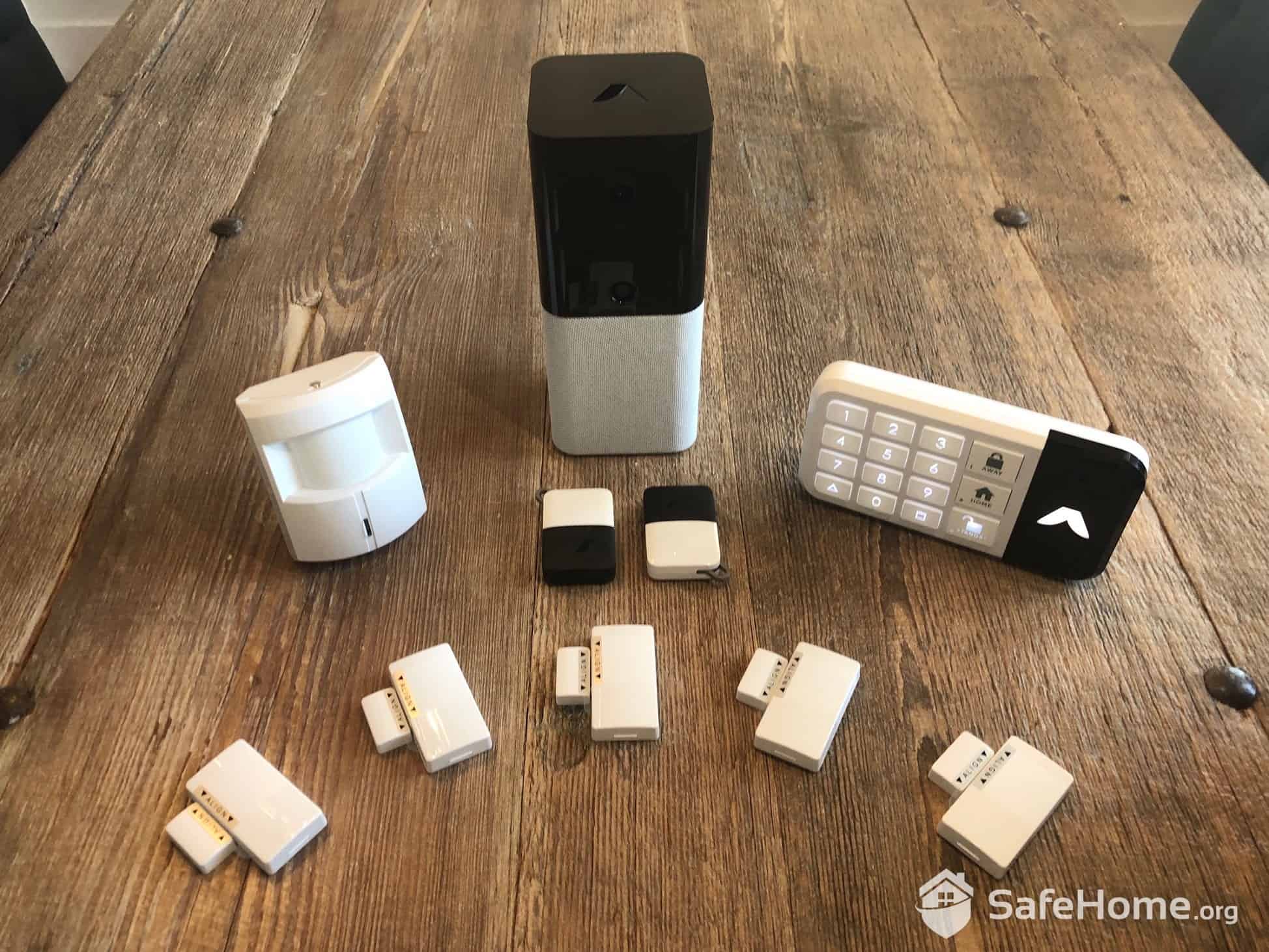
Wireless security systems will help protect your home and prevent break-ins. They can detect when doors or windows are opened and closed using sensors. WiFi-enabled camera can also be used to monitor your property, and get notifications on your smartphone. You can also use wireless yard signs and stickers to alert potential burglars that your home is secured. These systems can be used to contact emergency services in case of a break in.
Disadvantages
While wireless security systems have many advantages, there are some drawbacks. Wireless security systems are less expensive than wired systems. These systems don't need wires to run through walls, ceilings or floors. This makes them more flexible. These systems are also more flexible and can be expanded to accommodate additional cameras or sensors. Wireless security systems can also be susceptible for interference due to electromagnetic and structural interference. Additionally, false alarms can be generated by wireless security systems.
Installation
Wireless security systems have many advantages, including the flexibility and speed with which they can be installed. Compared with wired systems, wireless systems don't require extensive upheaval and can be added to gradually as your home security needs change. Wireless security systems are less expensive and you can select the coverage that suits your property best.
Reliability
Wireless security systems have many advantages over their hardwired counterparts. These include ease of installation and greater reliability. They also have lower costs and require less upkeep.

Wi-Fi
Wireless security systems are able to work even in the event of an outage. It will also be less vulnerable to interference, tampering, interruptions due power lines, and other factors. These models are also equipped with updated features that provide greater protection of your property. These features include sensors that create more data points and new software that keeps your home safe and secure.
FAQ
Can ADT ever be hacked
ADT security is the oldest home alarm system available. ADT Home Security System remains the most trusted choice for many homeowners. They simply trust its reputation of being a reliable company dedicated to protecting homes from burglars and fires.
Hackers can also infiltrate organizations, as with everything, and take down trustworthiness. Hackers can easily hack into a network and steal sensitive data. If a hacker manages to infiltrate your network, they can access everything on the computer and modify the important settings. Hackers can, for instance, delete files and change passwords. It's important for you to remember that hackers could still try to access your house by stealing files, changing passwords, or deleting files. You need to arm yourself with information on how to keep your systems protected.
Are motion sensors capable of triggering alarms?
Motion sensor alarm systems have been around for decades, and they have become increasingly popular due to the rising number of break ins and thefts. The problem with these devices is that they are often too expensive, and they don't work well when placed inside cabinets. A motion sensor alarm system can be a great way to protect your home against intruders.
What is the best system for home surveillance?
If you want to protect your family from intruders, then you should consider buying a home security system with cameras. These systems are very easy to use, and provide many benefits for homeowners and renters. You can monitor your property remotely using your smartphone or tablet, computer, and other mobile devices.
What Home Security Systems cannot be hacked
The definition of hacking will determine the answer to this question. Hacking is the unauthorized access to computer systems, networks, and data. The majority of home security systems are not vulnerable to hacking because they do have software that allows others to remotely control them. They do not allow anyone to enter your property without your consent.
But, it is possible to hack some home security system if they are connected online. These systems typically require a password for operation, so anyone who knows the correct password can hack them.
Which one is better: home security camera or home security system?
Home security cameras are less effective than home surveillance cameras. They can detect sounds and movement in any room, even if there is no one present. On the other side, home security cameras are much cheaper than home alarm systems and can be easily mounted to windows and doors.
How can I choose among different home security systems?
You need to assess the level of threat in your community. A burglary alarm might be necessary if you live in a high-crime area. In rural areas where there are fewer burglaries, you might not need as much security.
You also need to consider whether or not you're willing pay more for these extra features. Some systems include cameras built in, while others do not. Some systems allow you to remotely monitor your home, while others require that you be present to view the footage.
Statistics
- Related questionsHome security systems that are 100% DIY (safewise.com)
- Unlike other online safety services that charge up to 100 percent of your monthly fee, Cove charges no upfront fees and has no hidden costs.
- Most home security companies will charge you around 75% of the remaining term of your contract if you cancel early—and some require 100%.Related questionsWhat type of contract length can I expect from security providers?Home security system cancellation (safewise.com)
- Cove sets you free without punishing penalties and fees, unlike other security solutions that charge 75% to 100% of your remaining contract. (safewise.com)
External Links
How To
How to Install A Home Security System
A home security system is a device that monitors your property and alerts you if there's any activity. It could be a motion sensor, doorbell camera, smoke detector, fire alarm, flood alert, carbon monoxide detector, burglar alarm, etc. A home security package usually includes one or more sensors (e.g. a motion detector), which send signals whenever they detect sound or movement. The signals are then sent over to a control box where they are monitored and recorded. A control panel will alert your phone, tablet or computer if something is wrong. You will be notified immediately and you can take immediate action.
The first step to installing a home security system is choosing the right type of sensors for your home. There are two main types. Active and passive sensors. Passive sensors don't require batteries; they just pick up sounds and vibrations from their surroundings. They include things like doorbells, sirens, and buzzers. Active sensors use electricity for data transmission. These sensors include motion sensors and cameras.
There are many different brands of sensors available today. Each brand has its advantages and disadvantages. For example, some sensors are weatherproof, while others aren't. Some come with built-in speakers so you can hear them even if they're outside. Others work only inside. Others are more complex, while some offer more advanced features like night vision.
After choosing the best sensor type for your property you can choose a manufacturer. This will make sure that your sensors function well together. Your local hardware store should have plenty of options to choose from.
After you have chosen a brand, you will need to decide how many sensors you wish to purchase. Most people start with one or two sensors, depending on whether they live alone or with family members. However, if you plan to add additional sensors later, you might consider buying extra than you think you'll need now.
Next, consider where you want to put your sensors. Do you want them near doors and windows? Or do you prefer having them hidden away? Before placing them around your property, you should get permission. You should also ensure that they don't interfere with electrical outlets or other property features.
After you've determined the location of your sensors, you will need a way that they can be connected to your control panels. Depending on your setup, you may need to purchase a power adapter or battery pack. Once everything is in place, you can start to monitor your property.